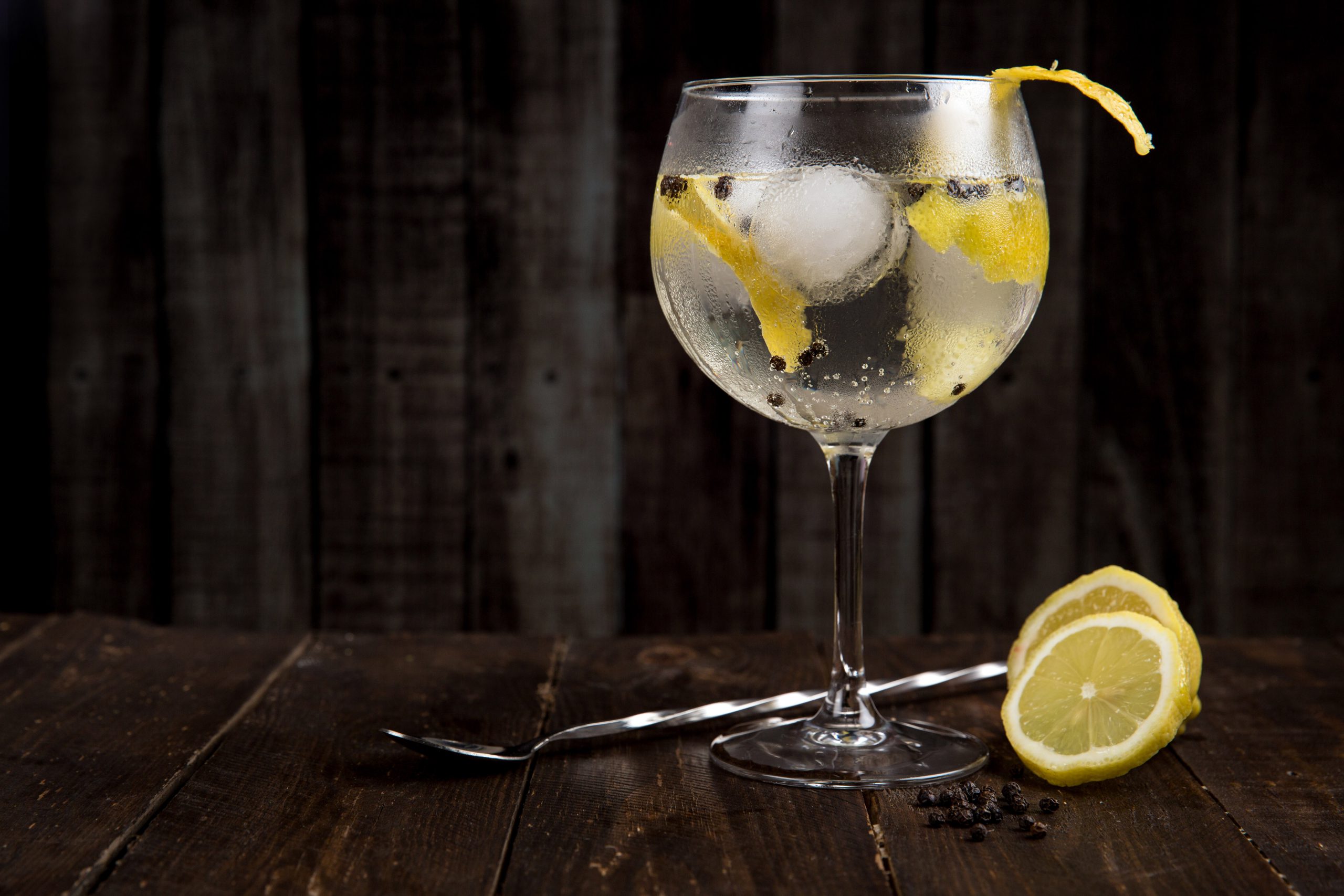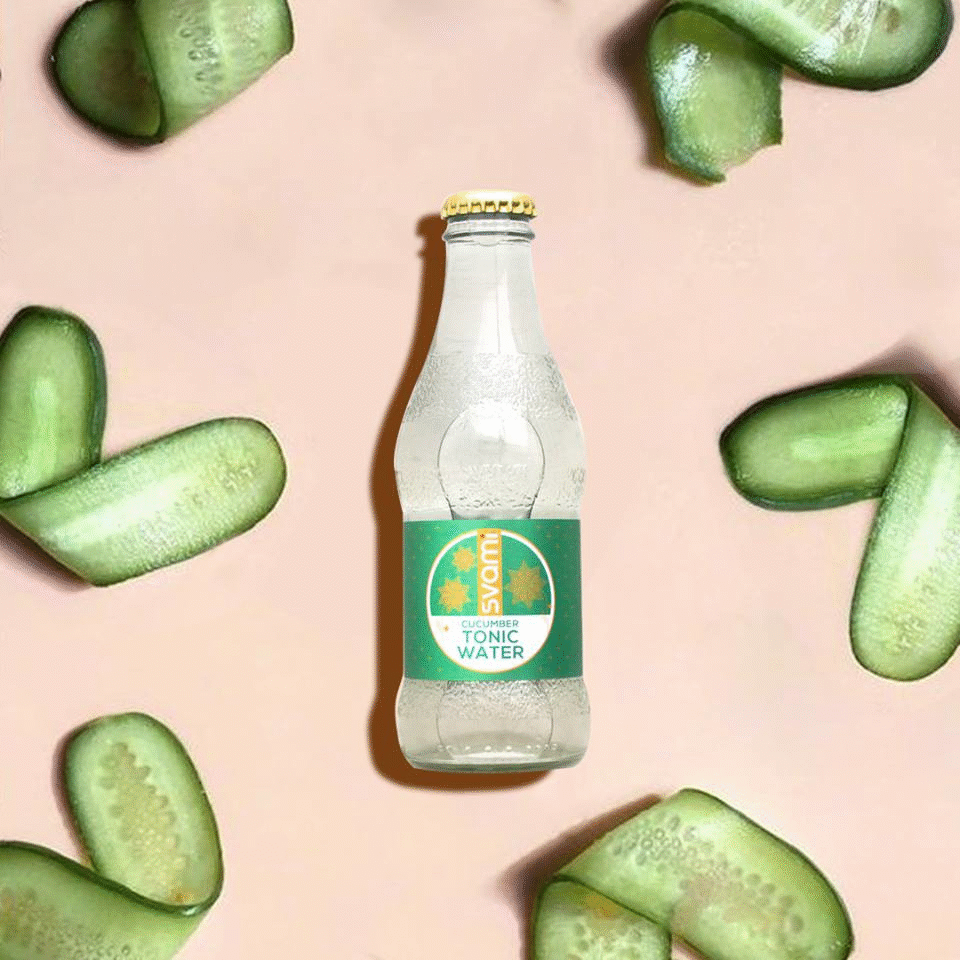
It takes gin-ormous dedication and love for your tipple to fill a void on the bar shelves, in order to sit back and enjoy a highball cocktail of your dreams. Aneesh Bhasin, Sahil Jatana, and Rahul Mehra did just that when they teamed up to develop Svami, the first homegrown tonic water brand based out of India. DSSC gets candid with Aneesh Bhasin to unravel what took over 150 years for India to finally have tonic water which can be termed its own.
Delivering A Superior Cocktail Experience In India

Aneesh Bhasin
Aneesh, co-founder and CEO of Hipcask, a wine-focussed smart phone app and consumer platform shared a mutual interest in alcoholic beverages with his brother-in-law Sahil, and friend Rahul. “As G&T drinkers we observed a predilection for gin among youth. The new age consumers are particularly mindful about the ingredients used to build up their cocktails, and good quality mixers were definitely amiss,” shares the gent, who along with Sahil and Rahul detected a strong mixer game while savouring tipples across bars in Europe. India, the birthplace of tonic water, had just one tonic option as opposed to several brands of mixers available abroad.
Prior to clinking their way to the Svami journey, the ardent trio stirred their gintos with half soda and half tonic to keep the drinks flowing through their dislike for sweet tonic water. Their insatiable love for G&T drove them to take it upon themselves to make more palatable mixers for a superior cocktail experience. It comes as little surprise to learn that artisanal tonic water Svami is produced with a stringent quality control, and no third party involvement. “We don’t contract manufacture our products because we want absolute control over quality which helps us improvise, innovate, and work freely towards developing newer flavour profiles.”
“Sloe gin is trending in the West, and we just introduced our sloe tonic crafted from sloe berries which is now available to our supporters, whom we call Friends of Svami. In winter, we will work around spice-based flavours, and for events like Fashion Week we can do custom labels; all of this will be possible because of complete flexibility and control over the production process,” offers Aneesh.
Ingredients Ingredients Ingredients: The Three Pillars of Success

To highlight the taste of the spirit in the cocktail, Aneesh, Sahil, and Rahul have traversed great lengths to procure ingredients for Svami drinks. “We source our ingredients globally. We tasted quinine, the ingredient that gives tonic water its bitter taste, from all over – Java, India, Burma before eventually settling in for the one from Congo. We found it cleanest in terms of flavour, as most others had an aftertaste which could alter the taste of the spirit and eventually the cocktail,” says Aneesh, who feels Indian quinine has a musky flavour to it. “We’re certainly open to the idea of creating tonic water using Indian quinine one day and may even contemplate calling it The Original Recipe. On a regular basis, if my tonic has a little muskiness, it may not work in favour of the gin at all,” says Aneesh, who enjoys his gintos at Andaz and Fig & Maple in Delhi, and Bombay Canteen and Dashanzi in Mumbai.
Besides quinine, the grapefruits for grapefruit-flavoured Svami tonic, come from USA, and Indian cucumbers go into the making of the refreshing cucumber-flavoured Svami tonic. “We are trying to work a lot more with Indian flavours such as cinnamon, pepper, and even Nagpur oranges,” tells Aneesh.
What’s Next On The Cards
The trio conceived Svami as a mixer company with an evolved vision. “Our vision is a lot bigger than tonic,” reveals Aneesh, “In three months you will get a taste of our next product, a ginger ale that is high on flavour and low on sugar.” Svami aims to be a company producing ace mixers out of India. Watch out for their range of products such as diet tonic, soda, flavoured soda, and even a cola that will hit the gourmet supermarket shelves in mid-2019. The cola, as we hear it, is a departure from typical colas. It is being developed as a perfect mixer for rum and whisky, and will bear slightly more botanical flavours — expect hints of vanilla and orange in your cola with lower sugar content.
Besides, the trio has invested their energies into christening Svami correctly. It is a name easily pronounceable by Indian servers, who, they feel make great salesman for the brand.
Size Matters
Svami tonic water comes packed in nifty 200 ml glass bottles departing from the usual option of 300 ml can from the other players in business. We quiz Aneesh on the deeper dent in the pocket for Svami and he quips, “All global brands have a serving size of 200 ml, and some even offer 150 ml. A bigger serving size is mostly lying on the counter being wasted or going flat. Svami is free of corn-syrup, less on sugar, and the product we are providing cannot be sustained at a lesser price tag. Our ingredients including grapefruits don’t come cheap and there is 40% GST levied on tonic water.”
Raise A Toast To Environment-Friendly Tonic Bottles
We cracked open a bottle of the cucumber tonic to get set for our evening soiree as we quizzed Aneesh about the environmental impact of glass bottles as a parting shot, and he explains, “Glass bottles are the way to go for us though cans can be recycled and work well. We strongly disapprove of the plastic print that a lot of cans in India bear, negating the entire effort. In fact, other tonic water bottles in the market use plastic too, which doesn’t augur well with us.”
Drop in at: www.svamidrinks.com or pick Svami from all Modern Bazaar outlets in Delhi, and Foodhall stores beginning mid-August.

